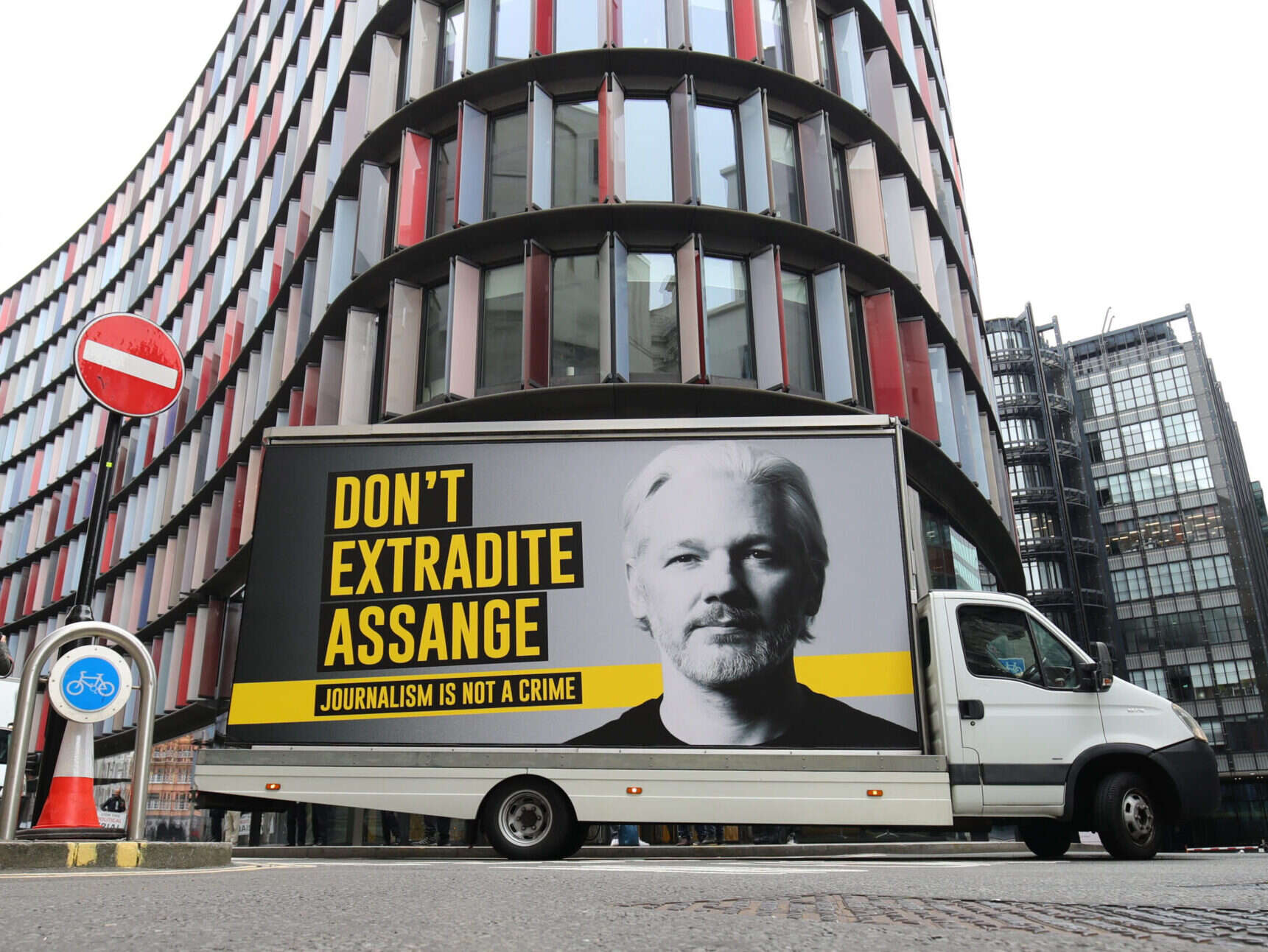
Wikileaks founder Julian Assange’s political opinions put him in the “crosshairs” of the Donald Trump administration, an academic has told his extradition hearing.
Professor Paul Rogers told the Old Bailey the organisation’s revelations were “significant” in showing how the US coalition’s wars in Afghanistan and Iraq were going “wrong” despite public claims of their success.
The emeritus professor of peace studies at Bradford University said leaked documents published by Wikileaks exposed details of an extra 15,000 civilians killed in Iraq.
“[It was] probably one of the most significant parts of the whole operation, putting into the public domain a very distressing aspect of the whole war,” he said.
“There is now greater caution among western countries, particularly the US and UK, to go to war, particularly at an early stage… I think that’s particularly down to Wikileaks.”
Assange is fighting extradition to the US on an 18-count indictment, which alleges he plotted to hack computers and conspired to obtain and disclose national defence information.
If convicted, he faces a maximum possible penalty of 175 years in jail.
Political scientist Prof Rogers said Assange’s work through Wikileaks as well as public speeches demonstrated his “libertarian” political views.
“The opinions and views of Mr Assange, demonstrated in his words and actions with the organisation Wikileaks over many years, can be seen as very clearly placing him in the crosshairs of dispute with the philosophy of the Trump administration,” he concluded in a report submitted to the court.
Prof Rogers said Assange’s success in bringing things to public attention was seen as a “danger” to the Trump regime.
“This belief that Assange and what he stands for represents some kind of threat to normal political endeavour,” he explained.
Asked by Edward Fitzgerald QC, for Assange, if he believed the charges against Assange are motivated by “criminal justice concerns” or political considerations, Prof Rogers said: “I have to say it appears to be the latter.
“This does appear to be a political trial.”
The defence witness said the fact President Barack Obama’s administration did not prosecute Assange was also a factor in the Trump administration’s decision making.
“Mr Trump appears to take considerable personal antipathy to President Obama and what he did during his time in office,” he said.
“I think it’s reasonable to say that would be one reason, probably a significant one, as to why Mr Trump took this view.”
Prof Rogers was the second witness to share this view with the Old Bailey after Professor Mark Feldstein told the court Trump’s “poisonous vitriol” against the press suggested the prosecution of Assange was “rife with political motives”.
Assange has been held on remand in Belmarsh prison since last September after serving a 50-week jail sentence for breaching his bail conditions while he was in the Ecuadorian embassy in London for almost seven years.
The hearing, which is expected to last for around four weeks, continues.
Picture: PA Wire/Aaron Chown
Email pged@pressgazette.co.uk to point out mistakes, provide story tips or send in a letter for publication on our "Letters Page" blog
